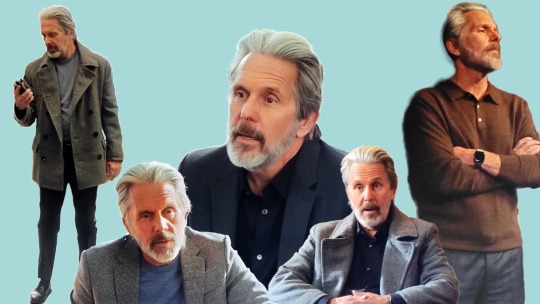#Collective memory
Explore tagged Tumblr posts
Text
"It wasn’t until about two years into the pandemic, when the “vax and relax” era was clearly not going to work, that I had to reckon with my system for organizing time. I couldn’t delay the future any longer; I couldn’t continue protecting the story of my life from the pandemic’s incursion. So I accepted the terrible fact that the pandemic was going to continue indefinitely and was not merely an event in my life but rather the container in which the rest of my life would take place. This was a difficult reckoning. It required that I come to terms with a great deal of grief about the failures of those around me; about what I lost and will have lost; a privilege in thinking that these were the sorts of world-historical changes that happened to other people, at other times. But it was also a reckoning that rescued the orderliness of time, for me. It was as if the clock was un-paused, and life resumed its forward march. I think most people stabilized their warped sense of time by other means. Instead of accepting that the pandemic continued on, that we failed to contain it and so would need to incorporate its ongoing reality into the stories we tell ourselves about our own lives, they instead transformed the fantasy of after into their reality. After the pandemic, after the lockdowns, after our world ruptured. They were able to interrupt the prolonged uncertainty that the pandemic had brought to all of our lives by erecting a finish line just in time for them to run through it. And as they ran through it, celebrating the fictional end of an arduous journey, they simultaneously invented a new before. This is the invention of memory. The Pandemic became something temporally contained, its crisp boundaries providing a psychic safeguard to any lingering anxieties around the vulnerability and interdependence of our bodies that only a virus could show us. No longer did it threaten to erupt in their everyday lives, forcing cancellations and illnesses and deaths. It was, officially, part of The Past. And from the safety of hindsight (even if only an illusion), people began telling and re-telling the story of The Pandemic in ways that strayed from how it all actually went down. It was a way to use memory as self-soothing."
--Emily Dupree, The invention of Memory
#pandemic#covid#covid 19#covid isn't over#covid conscious#time#memory#grief#collective memory#collective trauma#pandemic grief
6K notes
·
View notes
Text
The greatest enduring triumph of Nazi propaganda, is that the Western collectively remembers them as a single-minded, evil, yet, courteous war machine, which:
-murdered millions with industrial cleanliness and practicality
-disdained public expressions and outbreaks of violence
-collectively refrained from engaging in sexual violence against populations designated as "Subhuman"
These are all demonstrably false, yet, enduring.
78 notes
·
View notes
Text







Alden Parker
📷 Sonja Flemming/CBS via tvpulsemag.com
NCIS 19x09 Collective Memory
16 notes
·
View notes
Text
"Because memory and its transmission play an important role in this study, some preliminary remarks about these two issues are necessary. Studies that employ memory as an analytical tool have assumed various forms. One approach is to examine collective memories. ‘Collective memories’ concern how a society or a community remembers the past or a past event. Those who study collective memory might anaylse how and why such memories are formed, sometimes tracing their development over generations, at other times focusing on specific events or historical periods to elucidate broader cultural trends. In Canada, the most common approach has been the study of commemoration. This entails deciphering a commemorative event or a historical figure to chart how various generations have remembered history, people, and events. The resulting analyses are useful for understanding how memory became subject to manipulation as well as for evaluating changing norms, including attitudes about aboriginal people. Coates and Morgan, Knowles, Nelles, and Pope, for instance, all explore how aboriginal peoples were perceived in the late nineteenth and early twentieth centuries and show how succeeding generations obscured or rationalized the appropriation of aboriginal lands and justified assimilationist policies. As Pope explains about the commemoration of Cabot’s landfall:
The whole point of the landfall myth was that discovery was a precedent: North America was meant to be British; conquest was merely incidental. At least in public, the history of discovery was a substitute for other histories, a useful diversion from the issues of ethnic dominance, coercion, and dependency that we cram clumsily into the concept of conquest.
In contrast, my interest is in the inter-generational remembering of a collected memory. I focus on how a small group of men remembered what they had been told about an event in their people’s history. My subjects are five of the six men who testified in Sylliboy’s appeal. As Jeffrey Olick points out, a collected memory approach has distinct advantages. First, it potentially avoids the reification of a particular set of memories as is true of commemorative studies, which focus on a subset within a group and usually on individuals with access ‘to the means of cultural production, or whose opinions are more highly valued.’ Although Bodnar’s distinction between official and vernacular memory is one way to avoid this problem, the emphasis on charting societal norms renders detailed understandings of individual memories unworkable or if the focus does switch to the individual, does not obviate reification. Second, a collected memory approach does not necessarily assume the existence of a collective memory and allows for differences in how memories are remembered. Finally, focusing on individuals allows the use of psychology and neuroscience."
- William C. Wicken, The Colonization of Mi’kmaw Memory and History, 1794–1928: The King v. Gabriel Sylliboy. Toronto: University of Toronto Press, 2012. p. 25
#mi'kmaq#collective memory#collected memory#people's history#commeration#history of memory#indigenous history#first nations#indigenous people#settler colonialism in canada#academic quote#reading 2024#the king v. gabriel sylliboy
2 notes
·
View notes
Text
I don't decide to represent anything except myself. But that self is full of collective memory.
- Mahmoud Darwish
3 notes
·
View notes
Text
[film trailer here]
















AFRIQUE, JE TE PLUMERAI // AFRICA, I WILL FLEECE YOU (1992) dir. JEAN-MARIE TENO
#gorgeous#afrique je te plumerai#africa i will fleece you#documentary#jean marie teno#africa#literature#national literature#collective consciousness#collective memory#reflection#ugh#Cameroun#Yaoundé#cameroon#francophile#postimperialism#postcolonialism
9K notes
·
View notes
Text
we remember the words…
not just the cruel ones.
the ordinary ones.
the ones that said
“owner,”
“deserve,”
“illegal,”
“worth,”
and meant
nothing but sharp edges.
we remember language like fences,
nouns like chains,
verbs that ordered.
you didn’t know you were hurting.
but the language did.
we burned them.
softly.
carefully.
we did not silence ourselves.
we made space for something else to grow.
we remember the silence between your words.
it sounded like breathing.
— crakowia.remembrance_node.14
0 notes
Text
The White Stones of Reaction: Go, Democracy, and the Networked Counter-Offensive in the Work of Alfons Scholing
AbstractThis paper analyzes Alfons Scholing’s self-described position as the “white stones” in the game of Go—a reactive yet principled stance against an initiating “black stone” of ideological aggression. Framed through Scholing’s digital corpus (2013-2025), we examine how his trans-cultural philosophy , technical systems , and autobiographical narratives model a democratic resistance to fascist…
#activist ai#aesthetic governance#african ontology#Alfons Scholing#algorithmic empathy#algorithmic sabotage#ambient code#ambient surveillance#ancestral code#antifascist ai#antifascist coding#antifascist ritual#archive mechanics#artistic counterplay#artstation scanning#atheism#black stone#blockchain democracy#buddhism#chess metaphors#code-as-reaction#coded empathy#coded love#collaborative mapping#collective memory#collective witnessing#critical recursion#crowdsource indexing#cultural countercoding#data sovereignty
1 note
·
View note
Text
Morphic-resonance.
(Entanglement – Synchronicity – Panpsychism). This groundbreaking and radical hypothesis suggests that nature itself possesses memory. The fundamental question of morphogenesis—how things take their shape—remains one of the enduring mysteries in biology. What makes a rabbit rabbit-shaped? How do newts regenerate lost limbs? Why do molecules adopt specific shapes? Why do societies organize…
#Big Bang#Biological Inheretence#C.S.Peirce#Collective memory#consciousness#Emergent phenomenon#Entanglement#Genetic material#Gravity#Habits#Law of nature#Material dogmas#Mind and matter#Morphic field#morphism#Nature&039;s constants#Panpsychism#purpose#Quantum physics#Rupert Sheldrake#science and philosophy#Science and Religion#Sciencer and psychology#Space-Time#Speed of light#Spiritual healing#stairing#Synchronicity#telepathy
0 notes
Text
youtube
The Black Atlantic, is at the heart of Duppy Echoes, it is at the heart of the modern world as we know it.
0 notes
Text
The concept of 'collective memory' and the loss of it is so natural to successive generations (between shifting fashion, science, stars etc) that most people would hardly give it a second thought in today's world. Which in a way makes it even more important to notice.
"... Some people would say collective memory decays based not on calendar time but the speed at which new content is being produced. We forget Elvis because the Beatles came up and we forget the Beatles because Led Zeppelin came and we forget Led Zeppelin because Metallica came up, and so forth. But things become very dear to a generation and people will not forget about them just because new content came in. So decay would be something characteristic of humans, not the volume of content. To separate those two things, we would need to look at content from very different time frames. At the moment, we don’t have the richness of data that we would need to answer that question."
#academic research#collective memory#data science#pop culture#culture#sociology#traditions#media#MIT#Cesar Hidalgo
0 notes
Text
Temporal Sovereignties: On Memory as the Future’s Ethical Demand
In dominant epistemological traditions, memory has been frequently treated as a passive storage system, a neural or archival mechanism through which the past is retrieved and brought to light in the present. Photo by Pixabay on Pexels.com Whether in Enlightenment empiricism or late-positivist cognitive psychology, memory is frequently reduced to a retrospective function: the recall of that…

View On WordPress
#Ann Laura Stoler#Anti-Fascism#archival theory#Augustine#capitalism critique#cognitive science#collective memory#complexity#critical theory#cultural memory#decolonial thought#Edmund Husserl#Emmanuel Levinas#epistemology#Ethics#future studies#Gilles Deleuze#Henri Bergson#historical responsibility#Jacques Derrida#Memory#Michel Foucault#mnemonic justice#ontology#phenomenology#Philosophy#philosophy of time#Plato#Political Philosophy#Quentin Meillassoux
1 note
·
View note
Text

Alden Parker Style | NCIS 19x09 Collective Memory
Suit jacket detailing ✨


#alden parker#gary cole#ncis#ncis 19x9#collective memory#fashion appreciation post#menswear#handsome#silver fox#stunning in blues blacks grays
11 notes
·
View notes
Text
The Power of Shared Negative Experiences
How Collective Grievances Can Sour Memories and Harm Communities Negative experiences, whether personal or communal, have a profound impact on our emotional well-being. The process of sharing these experiences can be therapeutic, but when it evolves into a collective movement driven by negativity, it can lead to unintended consequences. Specifically, when one individual’s negative experience…
#amwriting#cognative bias#collective grievances#collective memory#community harm#community trust#confirmation bias#conflict resolution#creative writing#emotional contagion#emotional health#emotional well-being#empathy#FREE#group cohesion#group dynamics#group polarization#groupthink#healthy venting#memory distortion#mental health#mob mentality#personal growth#robin woods#robin woods blog#robin woods fiction#shared negative experiences#social behavior#social influence#whistle-blowing
1 note
·
View note
Text
No I don’t think he’s quite ready to fade away into our collective memory just yet.
#dougie rambles#personal stuff#collective memory#esoteric#vagueness#my poor attempt at a joke#this sounded funnier in my head
2 notes
·
View notes